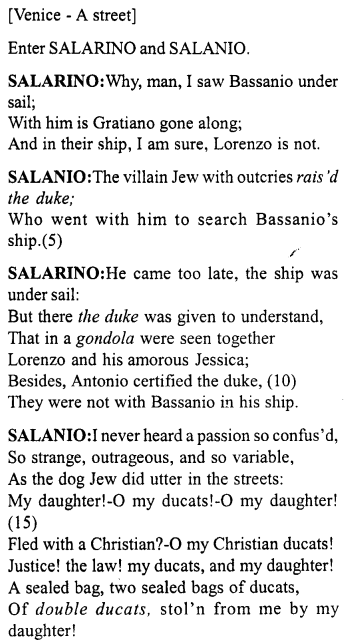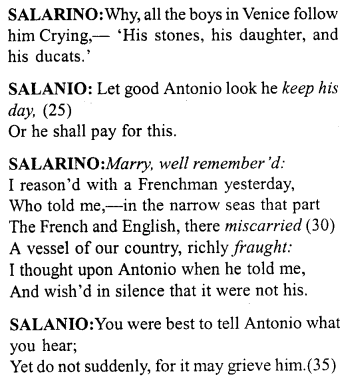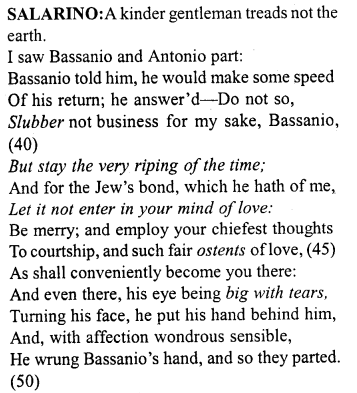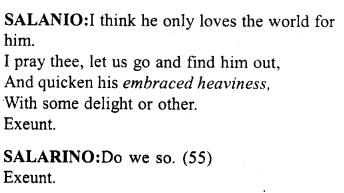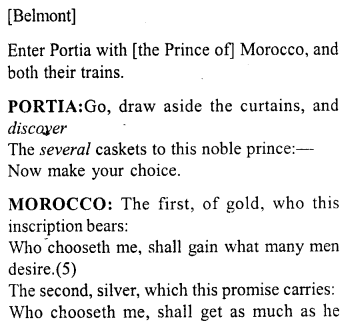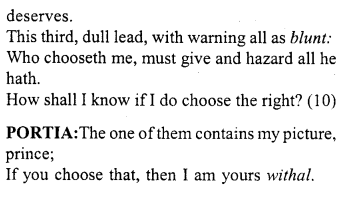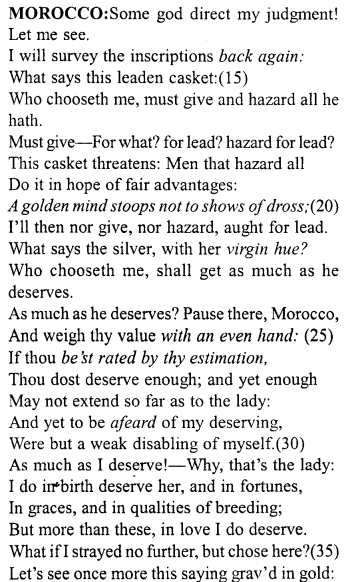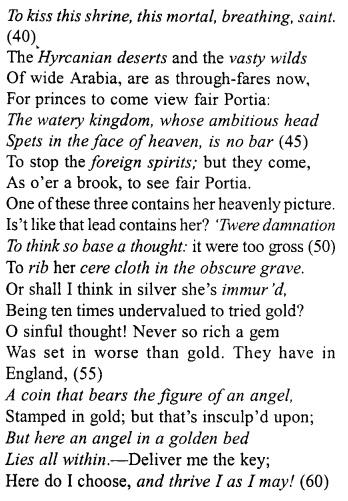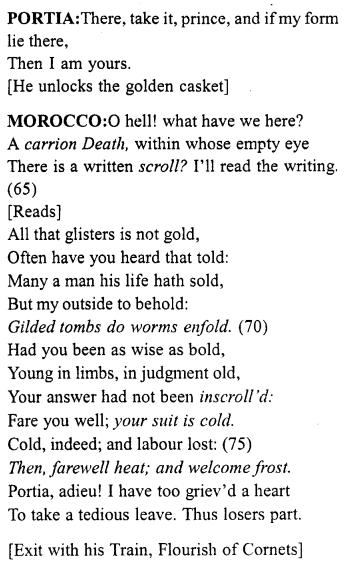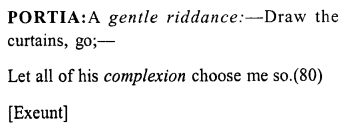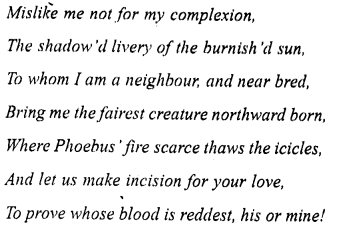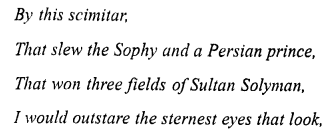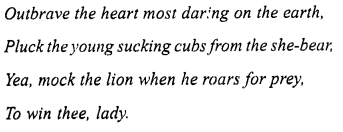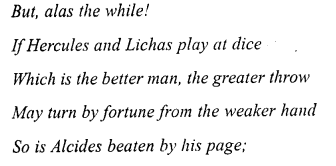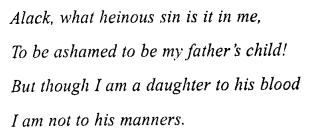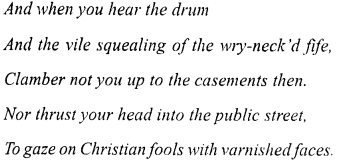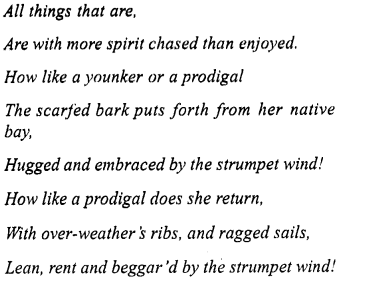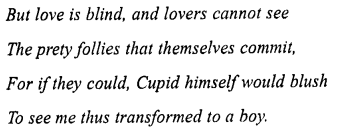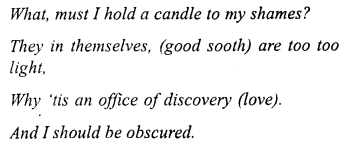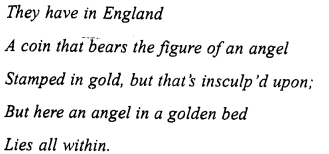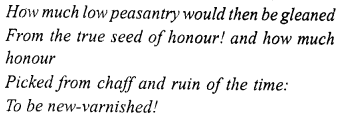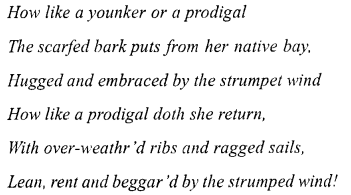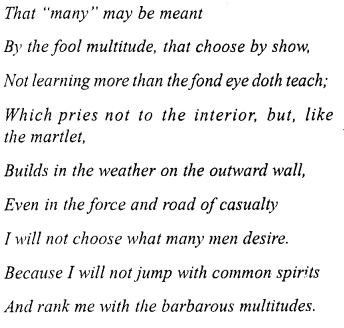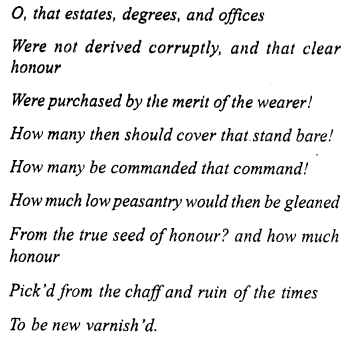Treasure Trove A Collection of ICSE Short Stories Workbook Answers Chapter 5 Notes A Face in the Dark – ICSE Class 10, 9 English
EnglishMathsPhysicsChemistryBiology
ICSE SolutionsSelina ICSE SolutionsML Aggarwal Solutions
About the Author
Ruskin Bond was born on 19 May 1934in a military hospital, to Edith Clarke and Aubrey Bond, in Kasauli. He is an Indian author of British descent. He lives with his adopted family in Landour, in Mussoorie, India. The Indian Council for Child Education has recognised his role in the growth of children’s literature in India. He got the Sahitya Academy Award in 1992 for Our Trees Still Grow in Dehra, for his published work in English. He was awarded the Padma Shri in 1999 and Padma Bhushan in 2014
When Bond was eight years old, his mother separated from his father and married a Punjabi Hindu, Hari. Ellen lived in Ludhiana until she died in 2014.
Bond spent his early childhood in Jamnagar (Gujarat) and Shimla. At the age of ten, Ruskin went to live at his grandmother’s house in Dehradun after his father’s death that year from jaundice. Ruskin was raised by his mother and stepfather. He did his schooling from Bishop Cotton School in Shimla, from where he graduated in 1950 after winning several writing competitions in the school including the Irwin Divinity Prize and the Hailey Literature Prize. He wrote one of his first short stories, “Untouchable”, at the age of sixteen in 1951.
Most of his works are influenced by life in the hill stations at the foothills of the Himalayas, where he spent his childhood. His first novel, The Room On the Roof, was written when he was 17 and published when he was 21. It was partly based on his experiences at Dehradun, in his small rented room on the roof, and his friends. On writing for children, he said, “I had a pretty lonely childhood and it helps me to understand a child better.” Bond’s work reflects his Anglo-Indian experiences and the changing political, social and cultural aspects of India, having been through colonial, postcolonial and postindependence phases of India.
Being a writer for over 50 years, Bond experimented with different genres; early works include fiction, short stories, novella with some being autobiographical. Later, he tried out non-fiction, romance and books for children. He said his favourite genres are essays and short stories. He considers himself a “visual writer” because for short stories, he first imagines it like a film and then notes it down.
About the Story
Ruskin Bond once famously remarked that while he does not believe in ghosts, he sees them all the time—in the woods, in a bar, in a crowd outside a cinema. Not surprising, then, that in his stories, ghosts, jinns, witches—and the occasional monster—are as real as the people he writes about. He makes the supernatural appear entirely natural, and therefore harder to ignore. This story brings together all of Ruskin Bond’s tales of the paranormal. It opens with perhaps his best-known story, the unforgettable ‘A Face in the Dark’ is set in a pine forest outside Simla, A Face in the Dark is the perfect story to have by your bedside when the moon is up.
A Face in the Dark is a short story with the theme of the supernatural bind. The supernatural and Bond’s classically beautiful descriptive and matter-of-fact writing style spin out a story that does not aim to scare the day lights out of you; it merely indulges in various accounts of what and how the supernatural may or may not exist as a part of our everyday life.
A Face in the Dark is one of Bond’s more famous stories, having been a part of Indian school’s English Lit. books for a long time now. This story is short and crisp and has one of those beautiful endings that say very little but tell a lot. The story is eerie, leaving one haunted in a melancholy sort of way, and is beautifully written.
Face In The Dark offers some semblance of escape for readers. It is able to “raise the possibility of another layer of life outside our material selves – something of the soul-force, the aura of a person that lingers on after the body is no more.” And so lingers on long after it has been read.
Plot
A Face in the Dark is a short story by Ruskin Bond. It’s the story set on a windy night when Mr Oliver, an Anglo-Indian teacher, dares to walk through the pine forest on his way back to the school after an evening at Simla Bazaar. He comes across a weeping boy who lifts his face, which is not a face but a flat something without eyes, nose or mouth. Mr Oliver runs only to bump into a watchman who again had a face like that of the faceless boy.
Theme
The story a Face in the Dark exhibits Bond’s interest in the supernatural. It deals with the paranormal depicting the story of a school teacher who while returning from the Simla Bazaar takes a shortcut through the forest and encounters a faceless weeping boy. The boy has no nose, ears or eyes. Mr Oliver runs in fear but to his horror meets the watchman who is also without a face.
Highlights of Speech/or Summary
A Face in the Dark is a short story by Ruskin Bond. It’s the story set on a windy night when Mr Oliver, an Anglo-Indian teacher, dares to walk through the pine forest on his way back to the school after an evening at Simla Bazaar. The Simla Bazaar was about three miles from the school. Mr Oliver, was a bachelor and would generally go to the town to while away time and then return using a shortcut through the pine forest.
At night when winds blew forcefully they would make an eerie sound which frightened most people and they preferred to take the main road. But Mr Oliver was not a nervous man . He took the forest road carrying a torch. The battery was low so the gleam moved fitfully down the road.
And then he saw a figure. It was a boy sitting alone on a rock. He stopped next to the. boy as boys from the school were not supposed to be out after dark. Inorder to see him better, Mr Oliver moved closer and said, ‘ What are you doing out here boy?’ The boy seemed to be crying. Mr Oliver asked him to look up and to his horror the boy had no face, ears, nose or eyes. There was just a cap over a smooth, round head. Mr Oliver gets horrified and drops the torch and runs for the school, crying for help.
He collided with the watchman who asked, ‘What is it, Sahib? Has there been an accident? Why are you running?’
Mr Oliver told him about the faceless boy he had seen in the forest and to his shock and utter horror the watchman raised the lamp to his own face which was like the boy’s with no ears, eyes or nose. A faceless man. And then the wind blew out the lamp.
Character
Mr Oliver
Mr Oliver was an Anglo- Indian teacher working in a boy’s boarding school near Simla. He had been at the school for several years. He was a bachelor and liked to stroll to the Simla Bazaar in the evening. He was a man who prided himself on not being fearful of the dark and was unafraid. Hence he often returned to the school in the late evening via the shortcut through the pine forest. But seeing the faceless boy in the forest scares and horrifies him and in panic he drops his torch and runs towards the school meeting the watchman on the way. But to his dismay the watchman too is without a face. Maybe it was all his imagination, his inherent fears being conjured to frighten him face to face in the dark.
Title
The title of the story ‘A Face in the Dark’ is very appropriate as it suggests to the reader a theme which is got dark or paranormal connotations. The story revolves around Mr Oliver and his strange and frightening encounter with a faceless boy in the eerie forest in the darkness of the night. Mr Oliver stumbles into a faceless watchman when he runs towards the school. So the emphasis is on his strange experience with people who are weird in the sense they have no face. These are supernatural experiences, extensions maybe of Mr Oliver’s subconscious fears.
Setting
The setting of the story is a deep and dark pine forest on the outskirts of the north Indian hill- station, Simla. Mr Oliver, a bachelor often visited the Simla Bazaar in the evening and then took a shortcut through the forest to, the school. But on a particular night as he returned through the forest he saw a boy sitting on a rock and crying. When he asked the boy to raise his face , he saw in the flickering light of his torch a faceless round head with a cap perched over it. In fear he ran towards the school only to encounter another faceless entity in the form of the watchman. The setting of the story thus is mysterious, eerie and supernatural.
Style
Ruskin Bond stories are not horror they are like experiences. None of the experiences he describes are dangerous, life threatening or altering – they are just different. All his stories are good hearted, honest and believable. And even in this story Ruskin Bond yet again proves he is a master story teller and more than that a master story collector.
In order to suit his theme and make the story more impactful Ruskin Bond adopts a simple, lucid and straightforward style. The story is narrated in the third person by an omniscient author. The author has used apt and appropriate imagery and language to create an atmosphere of eeriness and super naturalism and is catering not only to the imagination of adults but also of children. The dialogues are crisp and short and the descriptions of the scenes and setting very vivid and graphic which all enhance the mysterious and weird atmosphere which the author aims at creating.
The author adroitly uses language to create his mysterious and strange atmosphere. . He opens the story with a everyday, normal occurrence and through the use of words and phrases like ‘sad,’ ‘eerie sounds,’ ‘racked with silent sobbing,’ ‘shook convulsively’ succeeds in creating an atmosphere replete with supernatural and fearful connotations.
Critical Appreciation
A Face in the Dark is a short story by Ruskin Bond. It is a story that is set in a strange and mysterious setting and atmosphere. On a windy night when Mr Oliver, an Anglo-Indian teacher, dares to walk through the pine forest on his way back to the school after an evening at Simla Bazaar he is faced with a weird experience. The Simla Bazaar was about three miles from the school. Mr Oliver, was a bachelor and would generally go to the town to while away time and then return using a shortcut through the pine forest. In the forest in the dark he comes across a weeping boy who lifts his face, which is not a face but a flat something without eyes, nose or mouth. Mr Oliver runs only to bump into a watchman who again had a face like that of the faceless boy.
In this story Ruskin Bond yet again proves he is a master story teller. He draws on his travels, interactions with people, and his bonding with them gives them the confidence to share their stories with him which then he presents in the same tone and style bringing his silent listener’s great talent in it. His writing skill lies in the way he graphically uses his language and imagination to transport us to the hills and watching the sun setting beautifully and the dark night enveloping the forest with the wind howling in the trees to create an eerie and strange atmosphere. The imagery abounds in super naturalism and paranormal scenes. The image of a lonely boy in the night in a dark forest amidst the howling wind and rustling leaves, sitting on a rock ‘racked by silent weeping’ not only evokes a feeling of strangeness, of impending horror but also of sympathy for a weeping child. Thus a mastery of language helps him to achieve this effect. Ruskin Bond stories are not horror they are like haunting experiences. The experience is not dangerous, life threatening or altering -it is just different. It is honest and believable.
The tone is straightforward and objective without melodrama. The author with his consummate simplicity of style puts one at ease as if feel one is spending a weekend on a hill station and then late at night next to the bonfire everyone starts telling you about the stories they have heard from strangers with haunting experiences. His tone and style gradually make make the reader warm like the bonfire burning, and attention is only diverted when shadows move in the vicinity or leaves rustle as if someone far is listening. One is transported into the world of paranormal activities without realising but the story is in no way macabre.
Bond builds the atmosphere from the ordinary to the surreal. He opens with the description of the ordinary school teacher’s routine, then introduces the eerie atmosphere of the dark forest with the howling wind, then a surprise element of sympathy and anger at the boy out after dark leading to the horror of the faceless entity, a surreal and weird encounter. The narrator writes, ‘He carried a torch -on the night I write of, its pale gleam, the batteries were running down – moved fitfully over the narrow forest path. When its flickering light fell on the figure of a boy, who was sitting alone on a rock, Mr. Oliver stopped.
Boys were not supposed to be out of school after seven p.m. and it was now well past nine.’ This detail about the torch suggests that something is not right and makes us wait expectantly for the unusual. And such an effect speaks of the superior writing and storytelling skills of Ruskin Bond.
Glossary
- Outskirts: parts of a town away from the center.
- Strolled: to walk in a relaxed manner.
- Eerie: mysterious, frightening, strange.
- Nervous: anxious.
- Miscreant: a person who has done something wrong.
- Distinctly: clearly.
- Scrambled: moved quickly.
- Stumbled: tripped.
- Gasping: breathing heavily and in a fast way.
- Horrible: terrible.
For More Resources
